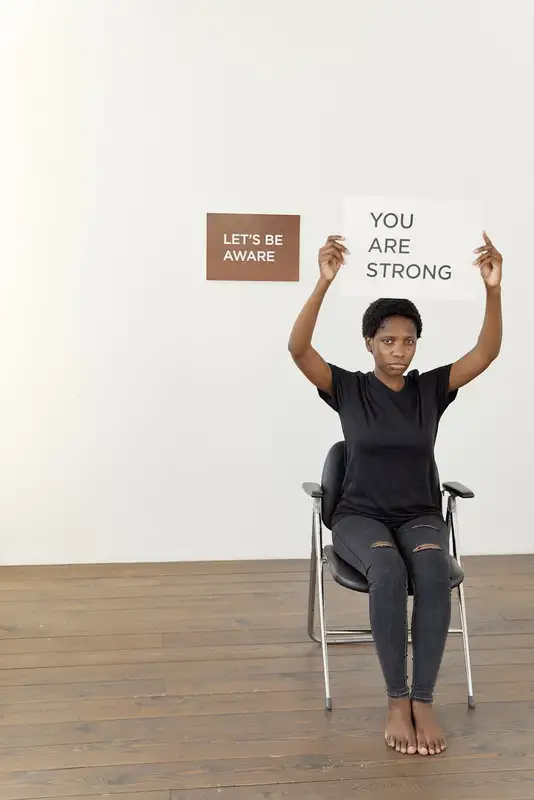In the world of sports, mental health has become a significant topic of discussion, with numerous athletes stepping forward to share their personal battles. By doing so, they are breaking down barriers and encouraging others to prioritize mental well-being alongside physical fitness.
Simone Biles: A Champion for Mental Health
Simone Biles, widely regarded as one of the greatest gymnasts, made a bold move during the Tokyo Olympics by withdrawing from several events to focus on her mental health. Her decision, influenced by immense pressure and personal loss, underscored the importance of mental wellness. Biles has since become a mental health advocate, working with the mental health app Cerebral as Chief Impact Officer, and continues to inspire many with her journey.
Michael Phelps: Turning Struggles into Advocacy
Michael Phelps, the most decorated Olympian, has been open about his struggles with depression. Despite his numerous achievements, Phelps faced significant mental health challenges, often masked by incidents like DUI and substance misuse. By sharing his story, he highlights the importance of communication and support, advocating for open discussions about mental health, which he credits with saving his life.
Naomi Osaka: Leading the Charge for Mental Health Awareness
Tennis sensation Naomi Osaka has been a prominent voice in mental health advocacy, candidly discussing her battles with depression and anxiety. Her decision to withdraw from the 2021 French Open brought global attention to the mental health of athletes. Osaka continues to share her journey, emphasizing the role of therapy in developing coping mechanisms and urging others to prioritize their mental health.
Noah Lyles: Challenging Mental Health Stigmas
Sprinter Noah Lyles has openly discussed his use of antidepressants and their positive impact on his life. Diagnosed with depression in 2020, Lyles uses his platform to challenge the stigma surrounding mental health treatment, advocating that seeking help is a sign of strength. He co-founded the Lyles Brothers Sports Foundation to provide mental health resources to young athletes.
Jackie Baumann: Choosing Well-being Over Competition
German hurdler Jackie Baumann made the tough decision to retire from athletics at 24 due to mental health concerns. Despite her success, the pressure of competition became overwhelming, leading to insomnia and anxiety. Her story highlights the importance of recognizing when the demands of sport outweigh personal well-being.
Mark Cavendish: Battling Depression
Professional cyclist Mark Cavendish has shared his experiences with depression, which coincided with physical health issues. Despite his achievements, including multiple Tour de France stage wins, Cavendish faced significant mental health struggles. His openness serves as a reminder of the pressures athletes face and the necessity of mental health support.
Per Mertesacker: Coping with Performance Pressure
Former German footballer Per Mertesacker has spoken about his experiences with anxiety and stress due to the pressures of professional sport. He described physical symptoms like nausea and diarrhea before matches, highlighting the intense demands on athletes. Mertesacker’s story encourages a broader conversation about mental health in sports.
Bear Grylls: Building Mental Resilience
Adventurer Bear Grylls, known for his survival expertise, has opened up about his struggles with self-doubt and fear. In his book “Mind Fuel,” Grylls shares strategies for building mental resilience, challenging the notion that mental health issues are a sign of weakness.
Felix Neureuther: Advocating for Holistic Health
German skier Felix Neureuther is celebrated not only for his sports achievements but also for his commitment to promoting mental health. Through his initiative “Beweg dich schlau!” he educates young people on the importance of maintaining both physical and mental health.
LeBron James: Encouraging Open Dialogue
Basketball legend LeBron James emphasizes the importance of discussing mental health, particularly with young people. He advocates for open dialogue about pressure and emotions, believing that communication is key to managing mental health challenges.
Lindsey Vonn: Normalizing Mental Health Conversations
Olympic skier Lindsey Vonn has been candid about her long-term battle with depression. By sharing her experiences, Vonn aims to normalize discussions about mental health in sports, demonstrating that strength and vulnerability can coexist.
Roger Federer: Supporting Mental Health Awareness
Tennis icon Roger Federer has spoken about the mental challenges faced by athletes, advocating for greater openness and support within the sports community. He acknowledges the pressures of travel and competition, encouraging young players to prioritize their mental well-being.
Serena Williams: Embracing Vulnerability
Serena Williams, one of tennis’s greatest players, has shared her journey of managing anxiety and stress post-retirement. She supports mental health initiatives and emphasizes the importance of setting boundaries and seeking help when needed.
The stories of these athletes highlight the critical importance of mental health in sports and beyond. Their openness and advocacy continue to inspire others to seek help and prioritize their mental well-being.
